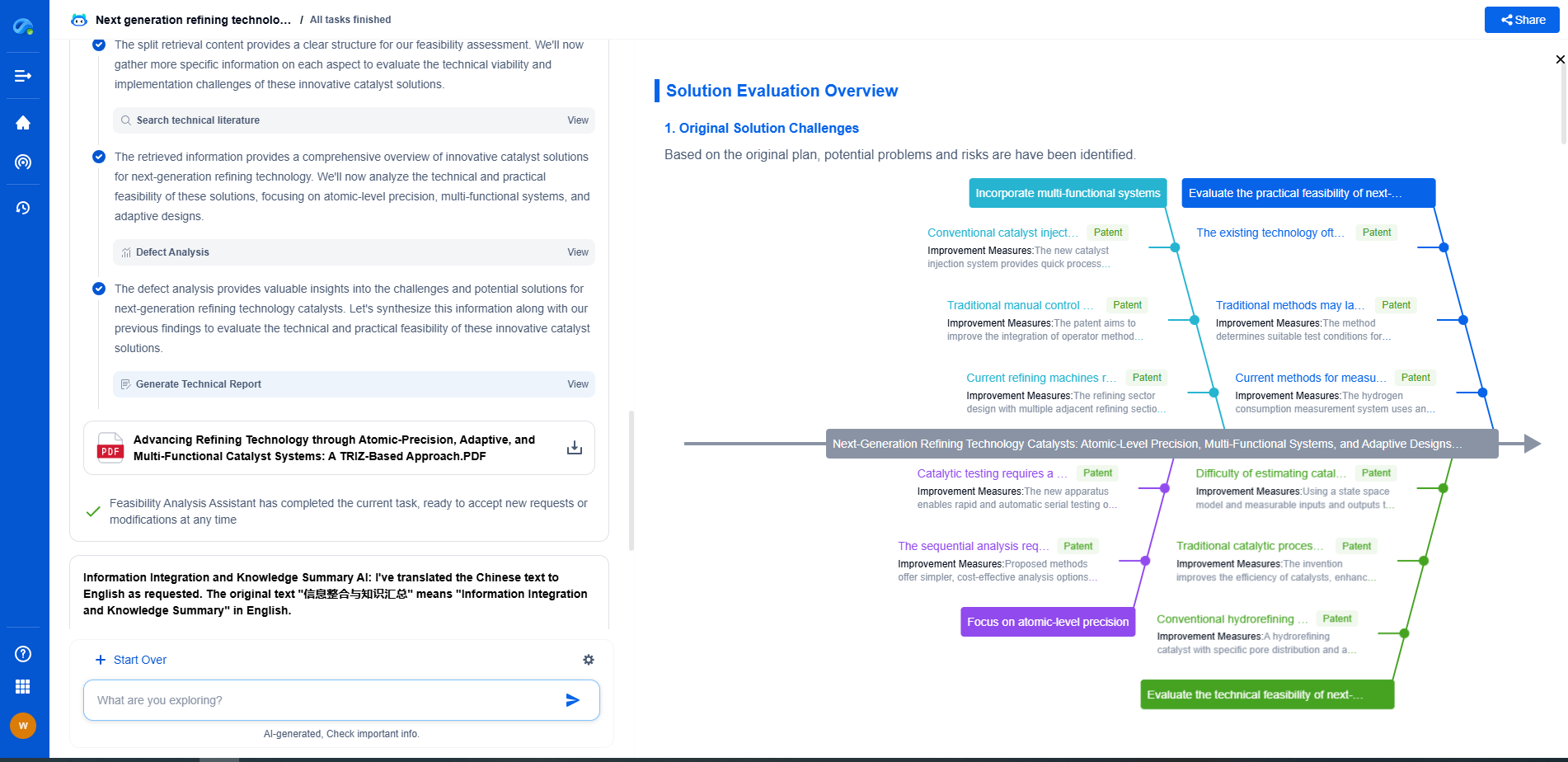Film Capacitors Explained: Types, Materials, and Applications
JUL 9, 2025 |
Types of Film Capacitors
Film capacitors are categorized based on the type of dielectric film material used. The most common types include polyester (PET), polypropylene (PP), polystyrene (PS), and polycarbonate capacitors. Each type of film capacitor is chosen based on its unique properties, which make it suitable for specific applications.
Polyester film capacitors, also known as Mylar capacitors, are widely used because of their low cost and satisfactory electrical properties. They are suitable for general-purpose applications where tight tolerance and low loss are not critical.
Polypropylene film capacitors are preferred for applications requiring higher power and better performance. They exhibit low dielectric loss and high insulation resistance, making them ideal for audio circuits, high-frequency applications, and situations where precision is essential.
Polystyrene film capacitors are mainly used when accuracy and stability are paramount. They have excellent temperature stability and low dielectric absorption, making them suitable for RF circuits and precision analog applications.
Polycarbonate capacitors, although less common today, are prized for their thermal stability and long life. They are used in environments where temperature fluctuations are a concern.
Materials Used in Film Capacitors
The dielectric material in film capacitors is pivotal in determining their electrical characteristics. These materials are typically plastic films, which are chosen for their insulating properties and ability to form thin layers.
Polyester films are economical and offer good electrical characteristics, making them suitable for low-frequency applications. They can withstand moderate temperatures, but their dielectric properties degrade faster under high stress.
Polypropylene films are highly resilient and provide excellent electrical performance, including low dielectric losses and a high breakdown voltage. They are often used in high-frequency and power applications because of their robustness.
Polystyrene films offer exceptional stability and low dielectric absorption, which is crucial for applications where precision is required. However, they are limited by their thermal properties, as they cannot endure high temperatures.
Polycarbonate films, while offering good stability and a wide temperature range, are becoming less popular due to cost and availability issues compared to other materials.
Applications of Film Capacitors
Film capacitors have a broad range of applications across various industries due to their reliability and performance. They are commonly used in power supplies, where they help filter and smooth out voltage fluctuations. Their ability to handle high frequencies makes them suitable for use in RF and microwave applications, where precision is crucial.
In audio equipment, film capacitors are preferred for their low distortion and high fidelity, ensuring sound quality remains clear and accurate. They are also prevalent in automotive industries, utilized in engine control units, and other electronic systems for their durability and reliability.
Film capacitors are widely used in industrial electronics, including motor drives and power electronics, where they contribute to energy efficiency and system reliability. Their ability to operate under harsh conditions makes them suitable for aerospace and military applications as well.
Conclusion
Film capacitors are indispensable components in modern electronics, offering a range of benefits from low cost to high precision. By understanding the different types, materials, and applications of film capacitors, engineers and enthusiasts can make informed decisions in selecting the right capacitor for their specific needs. Whether you are designing consumer electronics or industrial machinery, film capacitors provide the performance and reliability essential for today's advanced technologies.
Looking to accelerate your capacitor innovation pipeline?
As capacitor technologies evolve—from miniaturized MLCCs for smartphones to grid-scale energy storage devices—so must the way your team accesses critical knowledge.
Patsnap Eureka, our intelligent AI assistant built for R&D professionals in high-tech sectors, empowers you with real-time expert-level analysis, technology roadmap exploration, and strategic mapping of core patents—all within a seamless, user-friendly interface.
Try Patsnap Eureka now and discover a faster, smarter way to research and innovate in capacitor technology.
- R&D
- Intellectual Property
- Life Sciences
- Materials
- Tech Scout
- Unparalleled Data Quality
- Higher Quality Content
- 60% Fewer Hallucinations
Browse by: Latest US Patents, China's latest patents, Technical Efficacy Thesaurus, Application Domain, Technology Topic, Popular Technical Reports.
© 2025 PatSnap. All rights reserved.Legal|Privacy policy|Modern Slavery Act Transparency Statement|Sitemap|About US| Contact US: help@patsnap.com

